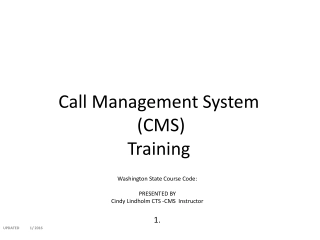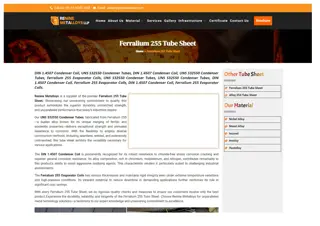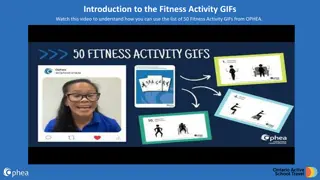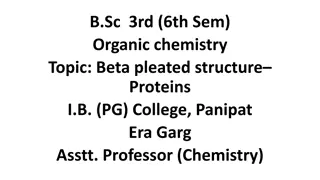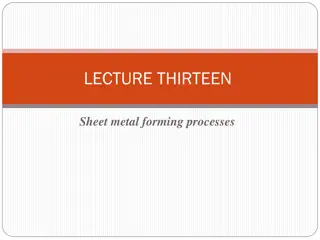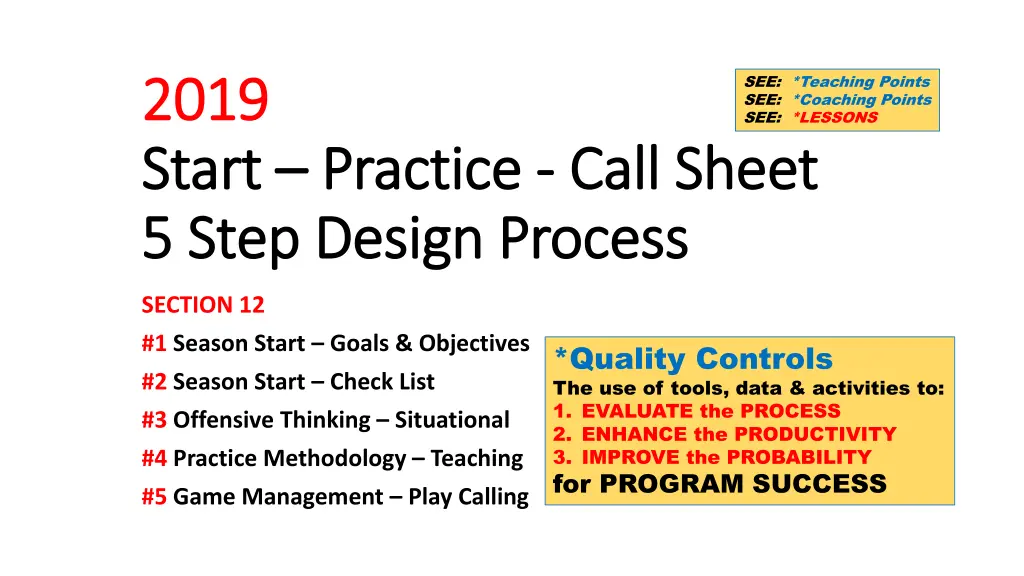
Quality Controls for Improved Program Success
Enhance your coaching methodology with quality controls to evaluate critical statistics, focusing on turnover ratio, explosive plays, offensive and defensive goals, and situational thinking. Use data-driven insights to enhance productivity and increase the probability of program success.
Download Presentation

Please find below an Image/Link to download the presentation.
The content on the website is provided AS IS for your information and personal use only. It may not be sold, licensed, or shared on other websites without obtaining consent from the author. If you encounter any issues during the download, it is possible that the publisher has removed the file from their server.
You are allowed to download the files provided on this website for personal or commercial use, subject to the condition that they are used lawfully. All files are the property of their respective owners.
The content on the website is provided AS IS for your information and personal use only. It may not be sold, licensed, or shared on other websites without obtaining consent from the author.
E N D
Presentation Transcript
SEE: *Teaching Points SEE: *Coaching Points SEE: *LESSONS 2019 2019 Start Start Practice Practice - - Call Sheet 5 Step 5 Step Design Process Design Process Call Sheet SECTION 12 #1 Season Start Goals & Objectives #2 Season Start Check List #3 Offensive Thinking Situational *Quality Controls The use of tools, data & activities to: 1. EVALUATE the PROCESS 2. ENHANCE the PRODUCTIVITY 3. IMPROVE the PROBABILITY for PROGRAM SUCCESS #4 Practice Methodology Teaching #5 Game Management Play Calling
*Teaching Point = statistical NFL data has shown teams that can consistently WIN turnover ratio and explosive plays = WIN 91% of games *LESSON = Offensive and Defensive goals must be simple and reflect REAL DATA (measurable) Season Start Season Start STEP 1 STEP 1 Goals & Objectives Goals & Objectives Offensive Goals Defensive Goals 1. Run the Ball 1. Stop the Run 2. NO Turnovers 3. Make Big (Explosive) Plays 2. Force Turnovers 3. Prevent Big (Explosive) Plays *Coaching Point = 8 QUALITY CONTROLS to evaluate critical statistics that lead to TEAM SUCCESS 4th QTR Execution Big Plays Ball Sec # of Plays Time Red Pts Red Att Score +=Run +4 +=Pass +6 +=1st Dn +=half dist to goal Runs +12 *must win turnover ratio vs opponent *offensive plays executed *offensive time of clock use *must win points in final quarter *TD *FG *attempts within the red zone (+20) *final score Pass +16
Season Start Season Start STEP 2 STEP 2 Check List Check List *Teaching Point = current research on motivation reveals that FUN and FEELING of SELF WORTH are the 2 KEY FACTORS *LESSON = focus on FUN & ALL (TEAM) OFFENSIVE INSTALL DEFENSIVE INSTALL 1. FUN (positive reinforcement) = Retention 1. FUN (positive reinforcement) = Retention 2. ALL LEARN & get reps = Opportunities 2. ALL LEARN & get reps = Opportunities 3. Fundamentals Taught Daily 3. Fundamentals Taught Daily 4. Inside & Outside Core RPO s 4. Base Front(s) and Cover(s) 5. Pocket & Waggle Core Pass 5. HEADS UP Tackling (Safety #1) 6. Blitz Beaters (Screen & Sprint) 6. Automatic Adjustments 7. Critical & Situational (Sneak + 911 + Short) 7. Critical Front-Cover + Situational
Offensive Thinking Offensive Thinking STEP 3A STEP 3A Situational Field Chart (+) Situational Field Chart (+) *Teaching Point = use situational ZONES to teach offensive thinking for everyone (Staff and Players) TOUCHDOWN Goal line RED ZONE 1. Tempo: Base count (1) = keep it simple 2. Score Touchdowns get in the end zone (Top plays with Impact Players) 3. Crunch offense @ +3 yard line. +20 yard line 4 DOWN ZONE (4 to get into Red Zone) 1. Tempo: Base count (1) & short Pistol (quick count) = expect blitz 2. Stay on Track (Normalcy) = 4 Downs to get 10 yards 3. Core offense - quality control (top plays with impact players) +40 yard line *LESSON = use 5 Min team periods working a specific ZONE + Down & Distance using only 3 plays versus the front- cover-blitz tendencies of your opponent = MINI Game Plans
Offensive Thinking Offensive Thinking STEP 3B STEP 3B Situational Field Chart ( Situational Field Chart (- -) ) *Teaching Point = START TEAM with BLACK ZONE + punt team & finish with RED ZONE + PAT/FG = GAMES APPROACH FREE ZONE 1. Tempo: Base count (1), short pistol count, use go-go = expect blitz 2. Get into 4 Down Zone 3. Total offense - attack numbers (RPO s) REVERSE DEFENSIVE LOGIC -30 yard line GET TO ZONE = (Get to Free Zone) 1. Tempo: Base count (1), long count (2) = expect blitz 2. Ball security and get 1st downs 3. Base offense - attack voids (quality control offense top plays best RPO s) -10 yard line BLACK ZONE 1. Tempo: Base count (1) = keep it simple 2. Ball security and get 1st downs 3. Crunch offense to ( )3 yard line 0 yard line *LESSON = must play your best football @ the 2 ends of the field + 3rd & 4th Downs = Critical (Prioritize Situational Reps)
Practice Methodology Practice Methodology STEP 4 STEP 4 Tactical Teaching Tactical Teaching *Teaching Point = current research has shown that players need 24 quality rehearsals before they develop successful motor learning patterns (REPS-REPS-REPS) *LESSON = *LESSON = everything you do must develop decision making (both for players & staff) NOT WHAT YOU DO, HOW YOU DO IT Tactical Skills: problem solving skills that are based on three elements (tactical triangle) Tactical Triangle: From a tactical perspective, think of a sport contest as a series of problems to be solved by you (the coach HC + assistants) and the players these 3 elements are involved: 1. Reading the play or situation 2. Acquiring the knowledge needed to make an appropriate tactical decision 3. Applying one s decision-making skills to the problem So, the key is to first identify the most important tactical decisions-skills needed to be successful. Next, make sure to create both for the coaches and the players as many practice opportunities (reps) involving these core tactical skills to accelerate their development decision skills. *Coaching Point = coach on the run + Holistic approach + Simple = Fast & Fun (5 Min periods & stay on time)
Game Management Game Management STEP 5A STEP 5A - - O Triangles O Triangles *Teaching Point = use offensive triangles for play inventory and for offensive thinking by formations *Start with & design TRIANGLES (3 in 1 + Blitz) *LESSON = use for scouting of Opponent & Self SETS Core RPO Compliment Counter / PAP Blitz 2x2 Duo Play 1 Play 2 Play 3 Blitz Beaters O-Principles 1. Numbers 2. Angles (edge) 3. Field Split Zone *PSU bubble = Alert *Stutter Bubble Power *Will Power *Pop pass = Alert 4 Verts *Double Post *B-Free Base Pass Split H-Screen Hot Mesh pass 2x2 Ace Play 1 Play 2 Play 3 Blitz Beaters # s + edge + field Sweep Strong *Mickey pass = Alert Power *Pop pass = Alert Counter Trey Waggles Read Screen SPO Northwest Mesh 3x1 Trio & Trips Play 1 Play 2 Play 3 Blitz Beaters # s + edge + field Sweep Strong Will Power 2 Verts& Bootlegs Sprint Snag Hot Mesh pass
Game Management Game Management STEP 5B STEP 5B O Situational O Situational *Teaching Point = use offensive situational chart for your TOP 3 PLAYS (Quality Control) *LESSON = use for scouting of Opponent & Self *LESSON = KNOW & DO what you DO BEST SITUATIONS PLAY 1 PLAY 2 PLAY 3 BLITZ GOAL ZONE (+5) Blast RPO Qb Power Silent Sneak=Nanu Sprint Snag RED ZONE Sweep RPO Waggles Power RPO Split H-Screen 4 DOWN ZONE Split Zone Pistol Sweep Sweep RPO Pistol Sweep FREE ZONE Double Post Pistol Power B-Free Pass Read Screen GET TO ZONE Read Screen Stutter Bubble Dart Power Read Screen BLACK ZONE Nanu (until past -3) Blast RPO 4 Verts Sprint Snag 2 MIN Best RPO 4 Verts Best SPO Sprint Snag 2 Point Plays Sprint Snag Read Screen Waggle Speed Option 4 Plays Left Bootleg 4 Verts Double Post B Slow Screen SPO 4 Min & Lead Qb Super Power Qb Power State Dart Power Sprint Snag 3rd & XL (15+) Bootleg 4 Verts Shallow Crosser B Slow Screen SPO
Game Management Game Management STEP 5C STEP 5C - - O Call Sheet O Call Sheet *Teaching Point = use play script to help guide play calling and to attack the DEF right from the start *LESSON = use for scouting of Opponent & Self *LESSON = Logical & Flexible Call Sheet (SCRIPT) 3RD DOWN SCRIPT PLAY 1 PLAY 2 PLAY 3 3rd & Long (7-15) SET #1 Duo to Field Trips to Field Trio into Boundary Look & See RPO s 1. See Safety (1-2) 2. See Mr0 s (ANA) 3. See Blitz (Alert) Split Zone *take if Access *lets OL attack now Sweep Strong *bad edge=Power *bad # s=CTR Trey *bad # s=Will Power Power Strong *good edge=Sweep *bad # s=CTR Trey *bad # s=Will Power Ace = 4 Verts Series *Base Pass *Best SPO 3rd & Med (3-6) SET #2 Trips to Field Ace to Field Duo to Field Pass 1st Run 2nd DB Post = Orange *man = B wheel Waggle @ H&X *or Waggle @ A&Z SPO Read Screen *or B Slow Screen Trips = Sprint Snag *North RPO 3rd & Short (1-2) SET #3 Duo to Field Trips to Field Trio into Boundary Compliments Constraints Core RPO s Stutter Bubble *No Access=Split Zone Veer Super Sweep *bad edge=Power *bad # s=Will Power Dart Power Strong *good edge=Sweep *bad # s=Will Power Duo = Best RPO *check Super&State *check Silent Sneak

